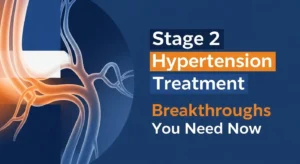Ever wonder why some people seem to eat whatever they want and not gain weight, while others just look at a donut and pack on the pounds? The answer, my friend, lies in understanding your metabolism. It's not just about weight loss; it's about understanding how your body uses energy to keep you alive and kicking! I'm here to break down the science behind metabolism in a way that's easy to understand and, dare I say, even a little bit fun. Let's dive in!

What Exactly Is Metabolism?
Okay, before we dive into the specifics, let’s lay the groundwork. Metabolism isn't some mysterious force; it's simply the set of chemical processes that occur in your body to maintain life. Think of it like a well-oiled machine. It's how your body converts food and drinks into energy. This energy powers everything you do, from running a marathon to blinking your eyes.
There are two main parts to metabolism. Let’s break it down even further:
- Catabolism: This is the breakdown of molecules to release energy. Think of it as your body dismantling a Lego castle to get individual bricks (energy).
- Anabolism: This is the building up of molecules using energy. Think of it as your body using those Lego bricks to build a new, even cooler castle (muscle).
“Metabolism is the engine that powers your life.”
Metabolism Calculator
The Core Components of Your Metabolic Rate
Your metabolic rate is how quickly your body burns calories. Several factors contribute to this rate. Now that you understand what metabolism is, let’s explore what determines how fast or slow yours operates:
1. Basal Metabolic Rate (BMR)
First and foremost, your body burns calories even when you’re doing absolutely nothing—and that’s thanks to your BMR. Your BMR is the number of calories your body burns at rest just to keep you alive. It's the energy needed for basic functions like breathing, circulating blood, and maintaining organ function. This accounts for the largest chunk of your daily calorie burn, typically around 60-75%!
Factors affecting BMR:
- Age: BMR generally decreases with age.
- Gender: Men typically have higher BMRs than women due to higher muscle mass.
- Muscle Mass: Muscle burns more calories than fat, even at rest.
- Genetics: Some people are just naturally blessed with a slightly faster or slower metabolism.
- Hormones: Thyroid hormones play a crucial role in regulating metabolism.
- Body Size: Larger bodies require more energy to function.
Estimating your BMR:
If you’re curious how this applies to you, here’s how to estimate your BMR. There are several formulas you can use to estimate your BMR. The Harris-Benedict equation is a common one, but it's important to note that these are just estimates:
- Men: BMR = 88.362 + (13.397 x weight in kg) + (4.799 x height in cm) – (5.677 x age in years)
- Women: BMR = 447.593 + (9.247 x weight in kg) + (3.098 x height in cm) – (4.330 x age in years)
2. Thermic Effect of Food (TEF)
This is the energy your body uses to digest, absorb, and process the food you eat. It accounts for about 10% of your daily calorie burn. Protein has the highest TEF, meaning your body burns more calories digesting protein than carbs or fats.
Here’s how your body burns calories based on what you consume.
| Macronutrient | TEF (%) |
| Protein | 20-30 |
| Carbohydrates | 5-10 |
| Fat | 0-3 |
3. Activity Thermogenesis (AT)
Beyond digestion, physical activity plays a major role in how many calories you burn. This is the energy you burn through physical activity, from structured exercise to everyday movements like walking and cleaning. This is the most variable component of your metabolic rate, as it depends entirely on your activity level.
- Exercise: Running, swimming, weightlifting, dancing – anything that gets your heart rate up!
- Non-Exercise Activity Thermogenesis (NEAT): This includes all the other movement you do throughout the day that isn't planned exercise, like fidgeting, walking around your office, or taking the stairs. NEAT can significantly impact your daily calorie burn.
Factors That Influence Your Metabolism (and What You Can Do About Them)
As we've touched on, several factors influence your metabolism. Okay, so what influences how fast—or slow—your metabolism works? Let’s look at the variables you can (and can’t) control:
1. Age
Let’s face it – time catches up with all of us. Unfortunately, as we age, our metabolism tends to slow down. This is primarily due to a decrease in muscle mass and hormonal changes.
What you can do:
- Strength Training: Building and maintaining muscle mass is crucial for combating age-related metabolic decline.
- Stay Active: Even moderate activity can help keep your metabolism humming.
- Healthy Diet: Focus on nutrient-rich foods to support overall health.
2. Gender
But it’s not just age that matters. Gender plays a role too. Men generally have higher metabolisms than women due to higher muscle mass and lower body fat percentage.
What you can do (regardless of gender):
- Focus on Building Muscle: Every people can benefit from strength training.
- Maintain a Healthy Body Composition: Aim for a healthy balance of muscle and fat.

3. Muscle Mass
If there’s one thing you should remember, it’s this: muscle matters. Muscle tissue burns more calories than fat tissue, even at rest. The more muscle you have, the higher your BMR will be.
What you can do:
- Strength Training: Lift weights, do bodyweight exercises, or use resistance bands to build muscle.
- Prioritize Protein: Protein is essential for muscle growth and repair.
4. Genetics
While you can't pick your parents, you can pick your habits. Genetics play a role in determining your metabolism, but it's not the only factor. You're not doomed to a slow metabolism just because your parents have one.
What you can do:
- Focus on What You Can Control: Diet, exercise, and lifestyle choices have a much bigger impact than genetics.
- Don't Use Genetics as an Excuse: Take responsibility for your health and make positive changes.
5. Hormones
Your body’s internal messengers—aka hormones—are major players in this game. Hormones, especially thyroid hormones, play a significant role in regulating metabolism.
What you can do:
- See a Doctor if You Suspect a Thyroid Problem: If you have symptoms like fatigue, weight gain, or hair loss, talk to your doctor about getting your thyroid checked.
- Maintain a Healthy Lifestyle: A balanced diet and regular exercise can help support healthy hormone function.
6. Diet
You really are what you eat, especially when it comes to metabolism.
What you can do:
- Eat Enough Protein: Protein helps you feel full, preserves muscle mass, and has a higher TEF than carbs or fats.
- Don't Restrict Calories Too Severely: Severely restricting calories can actually slow down your metabolism in the long run.
- Eat Regularly: Skipping meals can lead to overeating later and may negatively impact your metabolism.
- Stay Hydrated: Water is essential for many metabolic processes.
7. Sleep
Lack of sleep can disrupt hormone levels and negatively impact your metabolism.
What you can do:
- Aim for 7-9 Hours of Sleep Per Night: Prioritize sleep to support overall health and metabolic function.
- Establish a Regular Sleep Schedule: Go to bed and wake up at the same time each day, even on weekends.
How to Boost Your Metabolism (The Right Way!)
Ready to put all this into action? Here’s how to rev up your metabolic engine—safely and effectively. Now for the million-dollar question: how can you boost your metabolism? Forget the fad diets and magic pills; here are some evidence-based strategies:
Boost Your Metabolism Action 1
- Build Muscle: As mentioned earlier, muscle burns more calories than fat. Focus on strength training exercises.
- Examples: Squats, deadlifts, bench press, rows, lunges, push-ups.
- Eat Enough Protein: Protein not only helps build muscle but also has a higher thermic effect than other macronutrients.
- Aim for: 0.8-1 gram of protein per pound of body weight.
- High-Intensity Interval Training (HIIT): HIIT workouts are short bursts of intense exercise followed by brief recovery periods. They can boost your metabolism for hours after you finish.
- Example: Sprint for 30 seconds, walk for 60 seconds, repeat 10-15 times.
- Stay Hydrated: And yes, water matters more than you think. Drinking enough water is essential for many metabolic processes.
- Aim for: At least 8 glasses of water per day.
- Get Enough Sleep: Sleep deprivation can disrupt hormone levels and negatively impact your metabolism.
- Aim for: 7-9 hours of sleep per night.
Boost Your Metabolism Action 2
- Don't Skip Breakfast: Eating breakfast can help kickstart your metabolism for the day.
- Choose: A balanced breakfast with protein, complex carbs, and healthy fats.
- Drink Green Tea: Green tea contains compounds that may help boost metabolism.
- Aim for: 1-2 cups per day.
- Eat Spicy Foods: Capsaicin, the compound that makes chili peppers hot, may temporarily boost metabolism.
- Add: A pinch of chili flakes or a dash of hot sauce to your meals.
- Don't Severely Restrict Calories: Severely restricting calories can slow down your metabolism in the long run.
- Focus on: Eating a balanced diet and creating a sustainable calorie deficit.
- Move More Throughout the Day (NEAT): Find ways to increase your non-exercise activity thermogenesis (NEAT). Finally, stay in motion—even outside the gym.
- Examples: Take the stairs, walk during your lunch break, stand while you work, fidget.
“Consistency is key when it comes to boosting your metabolism. It's not a sprint, it's a marathon!”
Metabolism Myths Debunked!
There are a lot of misconceptions about metabolism out there. Let's bust some common myths:
- Myth: Some people are just born with a “fast” metabolism. While genetics play a role, lifestyle factors have a much bigger impact.
- Myth: Eating small, frequent meals boosts metabolism. The total number of calories you consume is more important than meal frequency.
- Myth: You can drastically change your metabolism overnight. Boosting your metabolism is a gradual process that requires consistent effort.
- Myth: “Metabolism-boosting” supplements work. Most supplements are ineffective and some can even be harmful.
- Myth: A slow metabolism is the reason you can't lose weight. While a slow metabolism can make weight loss more challenging, it's not the sole reason. Diet and exercise are still the most important factors.
The Bottom Line: It's a Marathon, Not a Sprint
Understanding your metabolism is a journey, not a destination. It's about making sustainable lifestyle changes that support your overall health and well-being. Don't get caught up in quick fixes or unrealistic expectations. Focus on building muscle, eating a balanced diet, staying active, and getting enough sleep. With consistency and dedication, you can unlock your body's secret and optimize your metabolism for a healthier, happier you!








